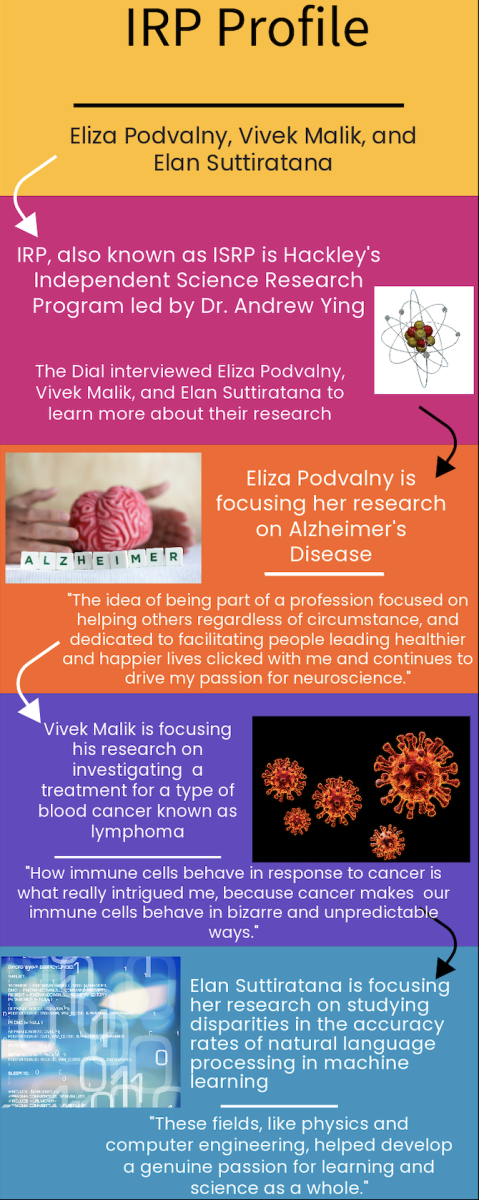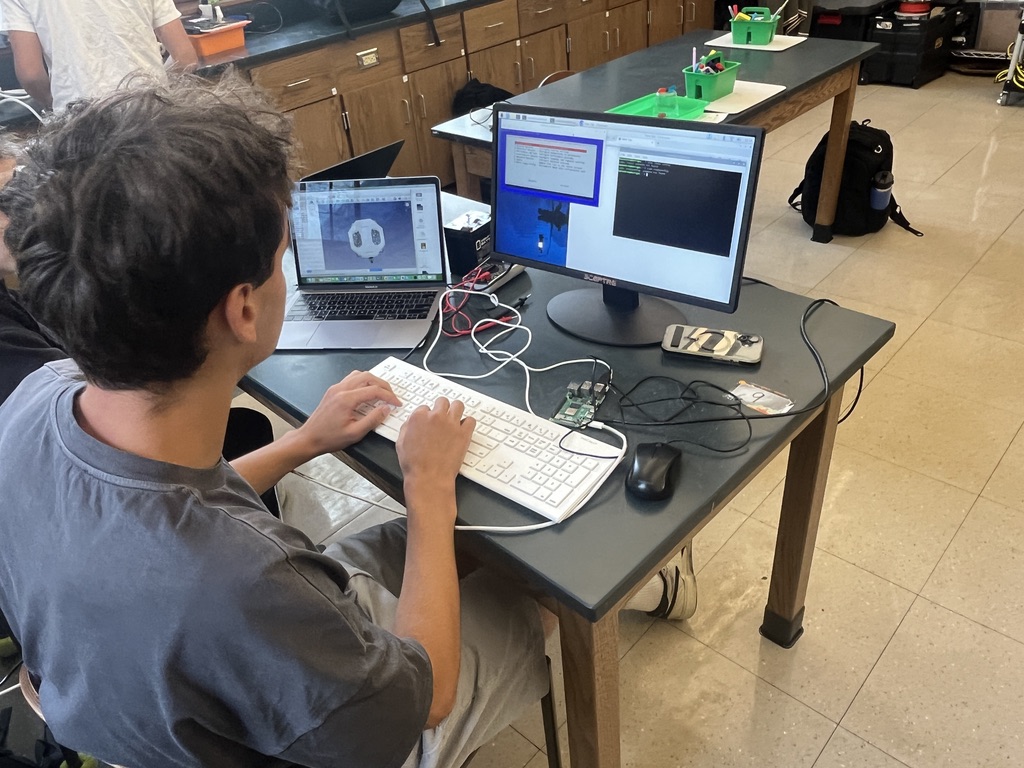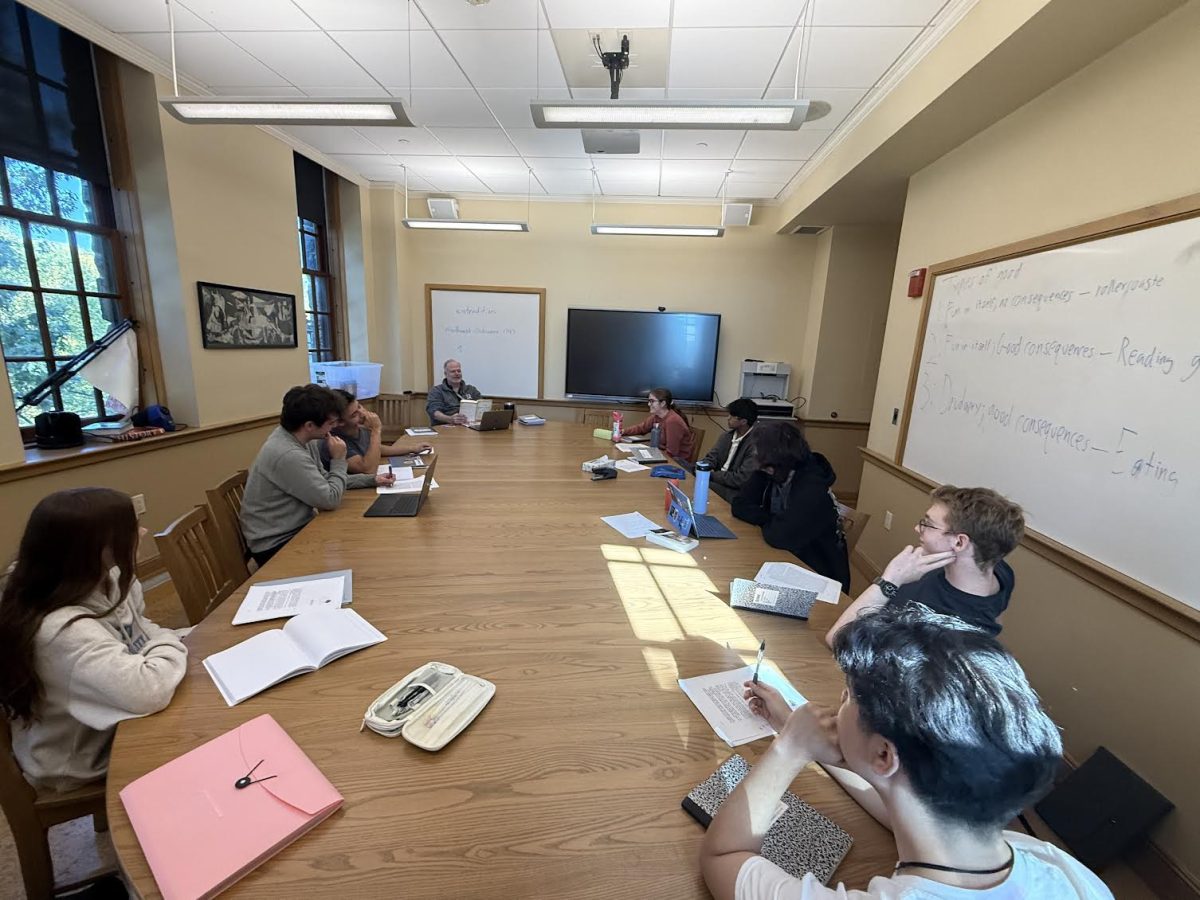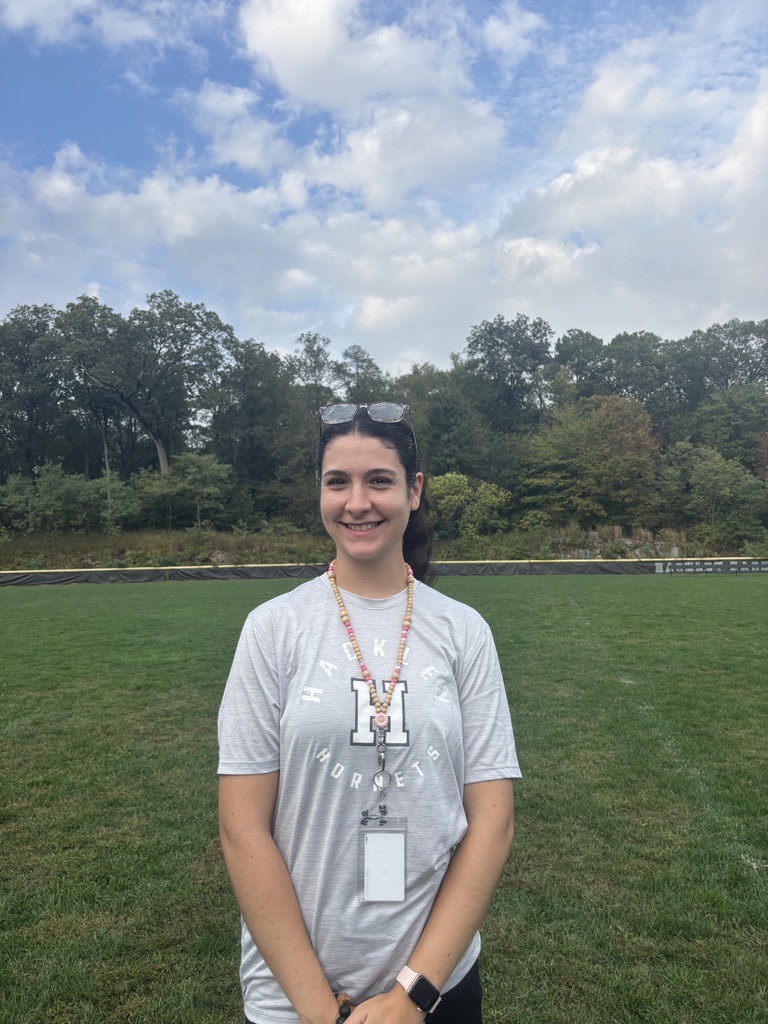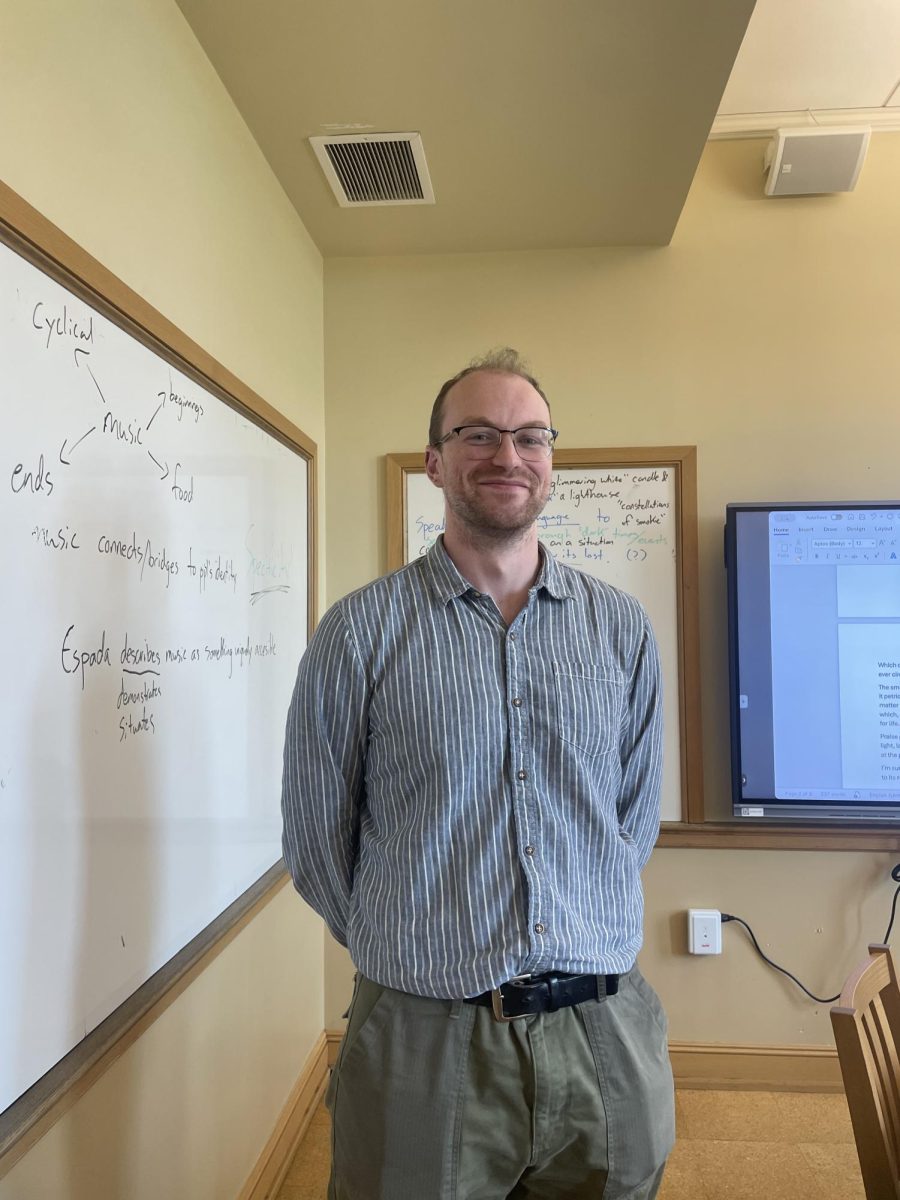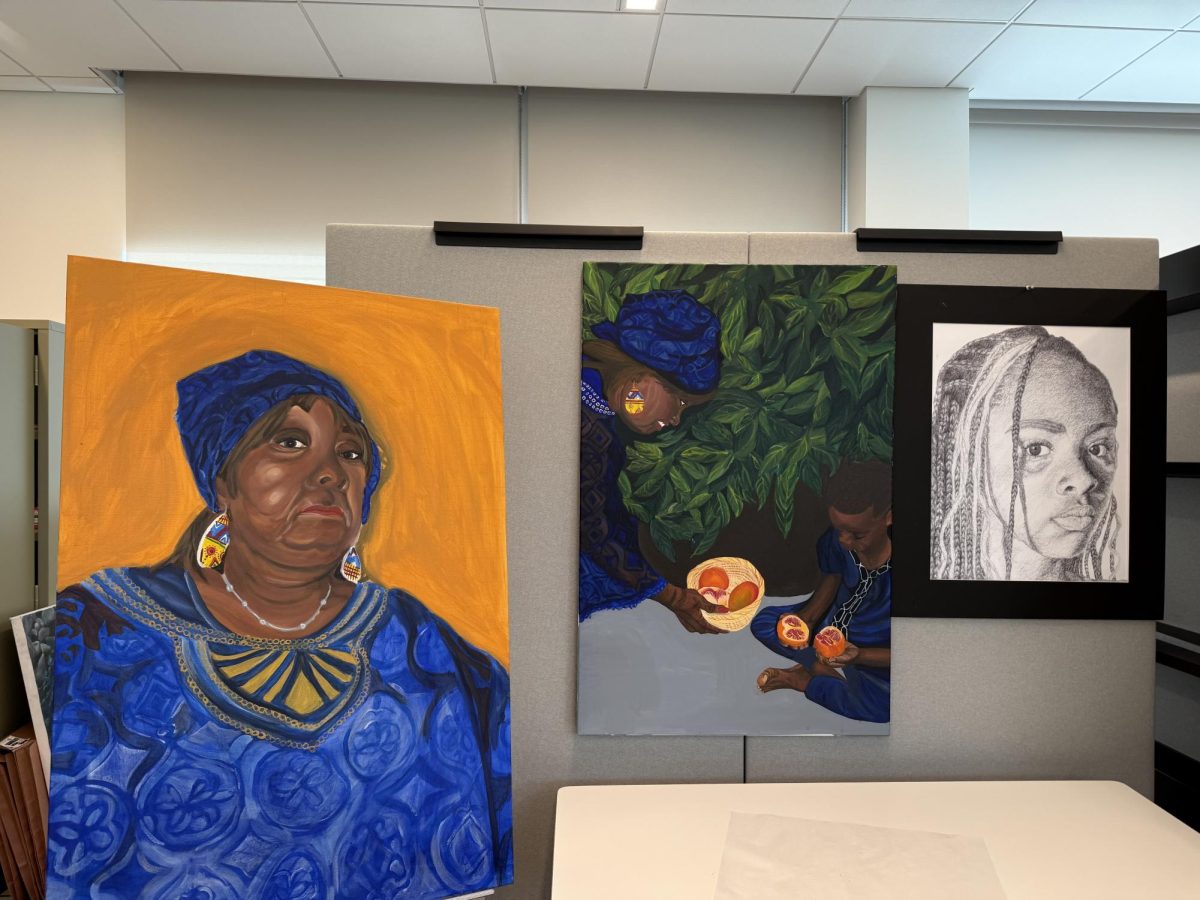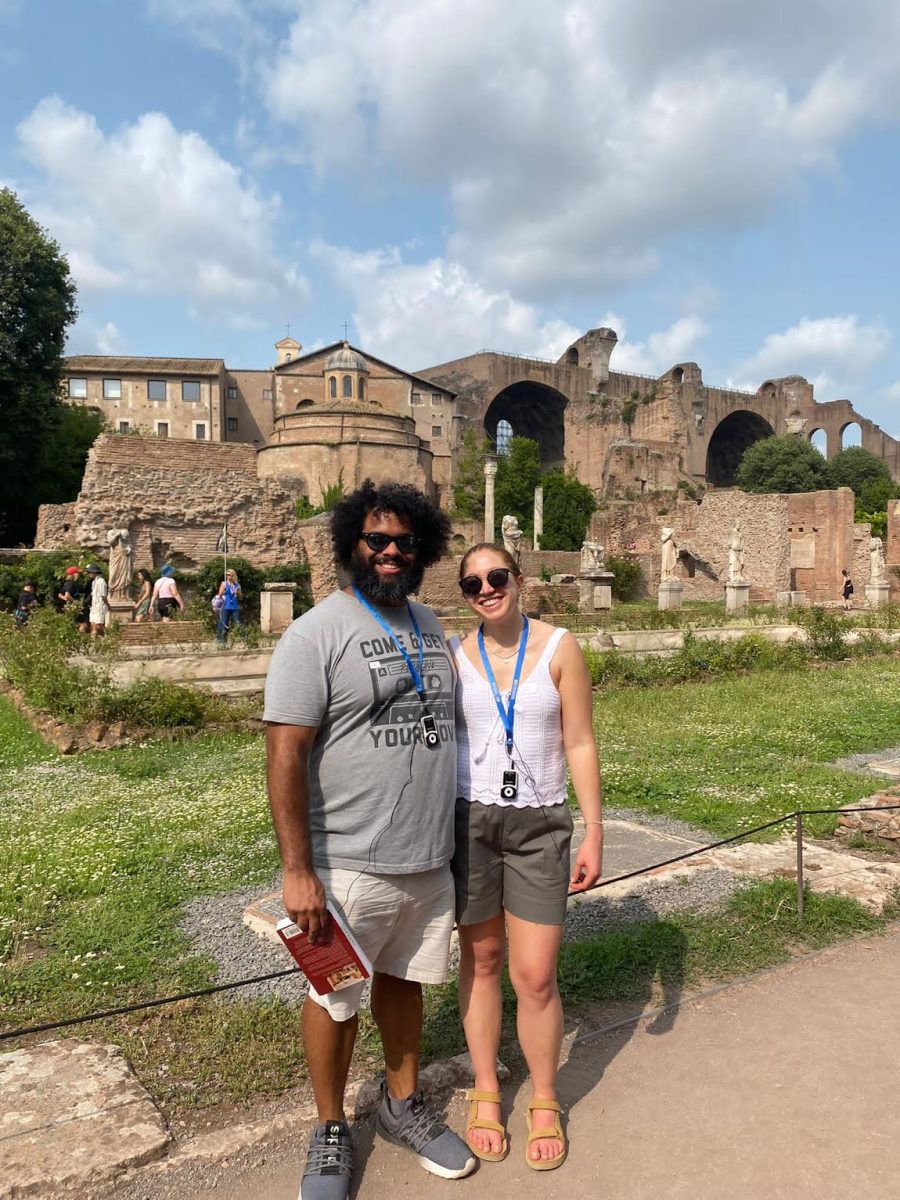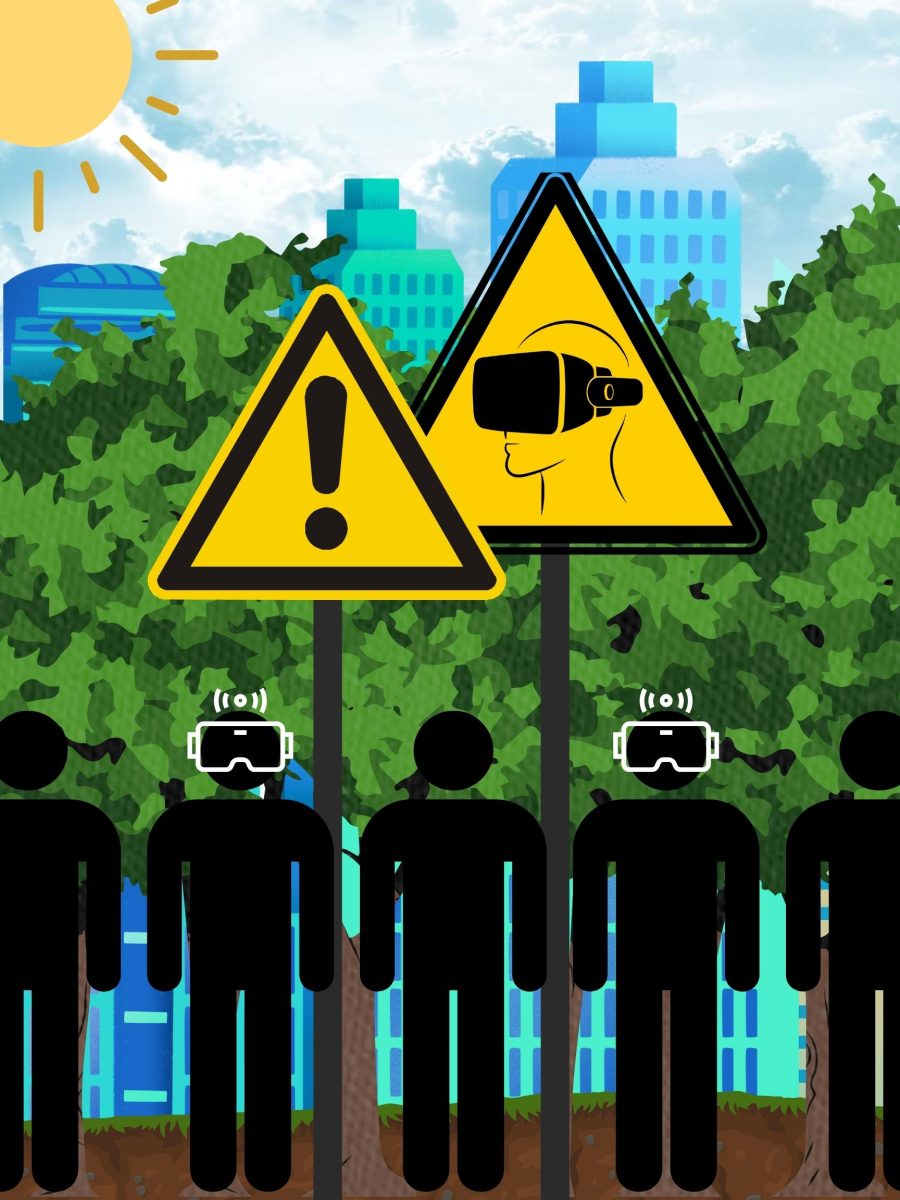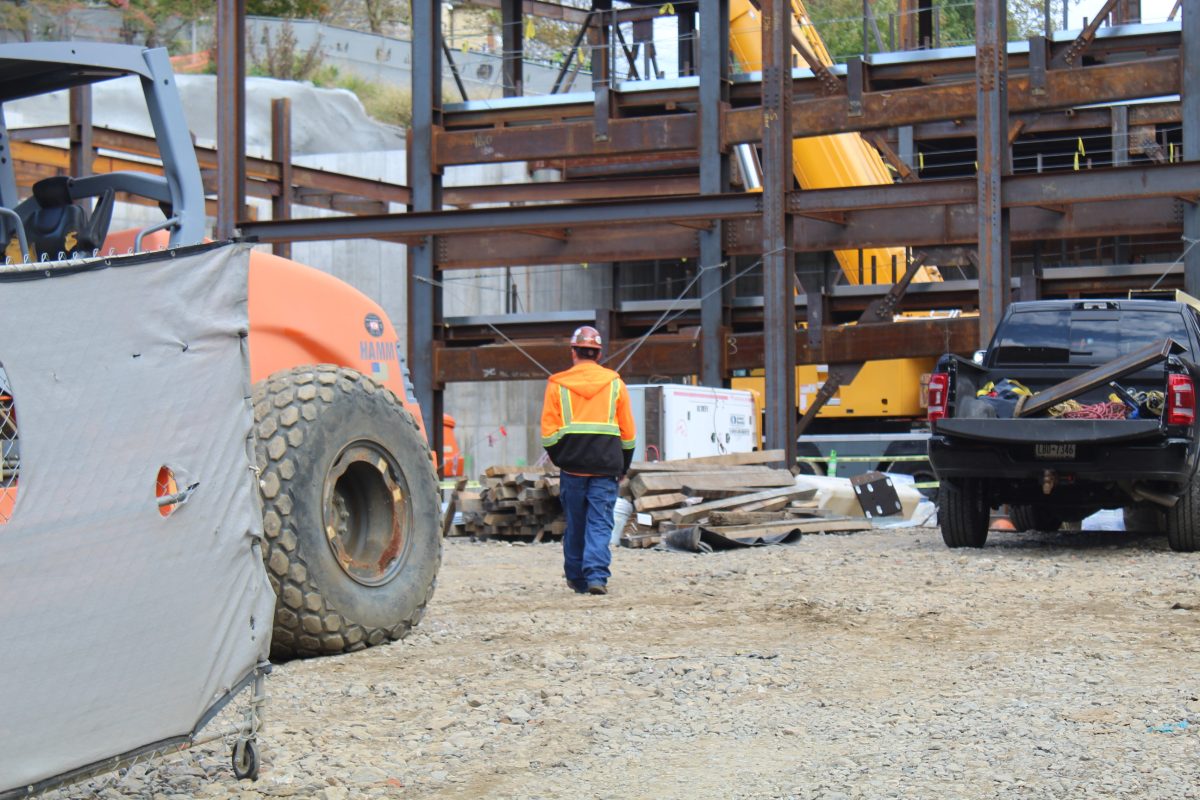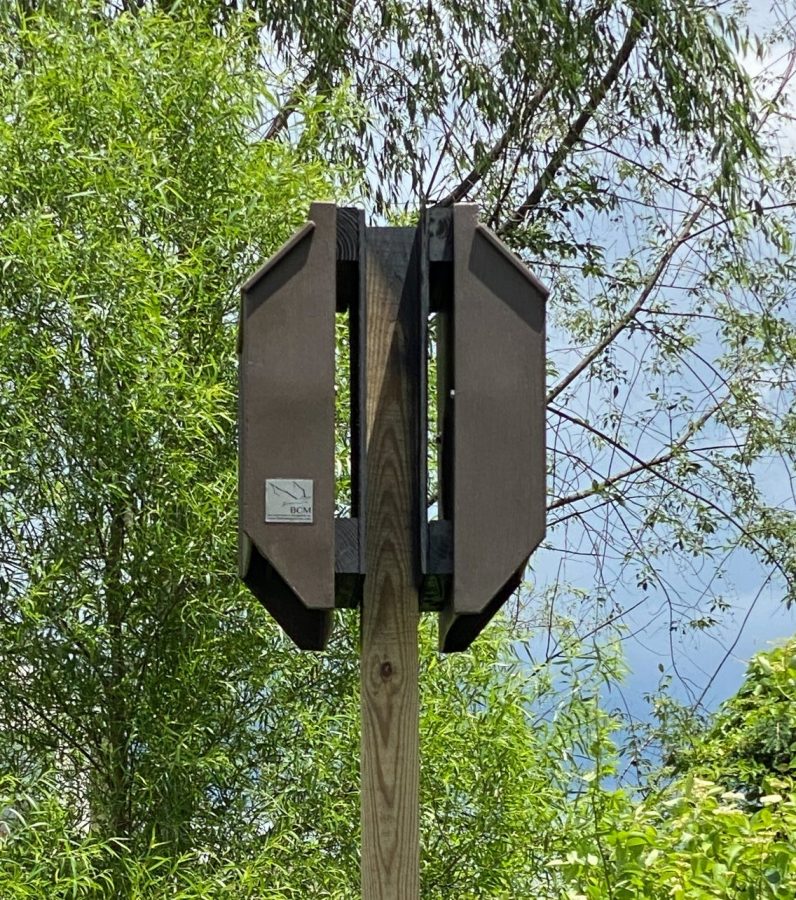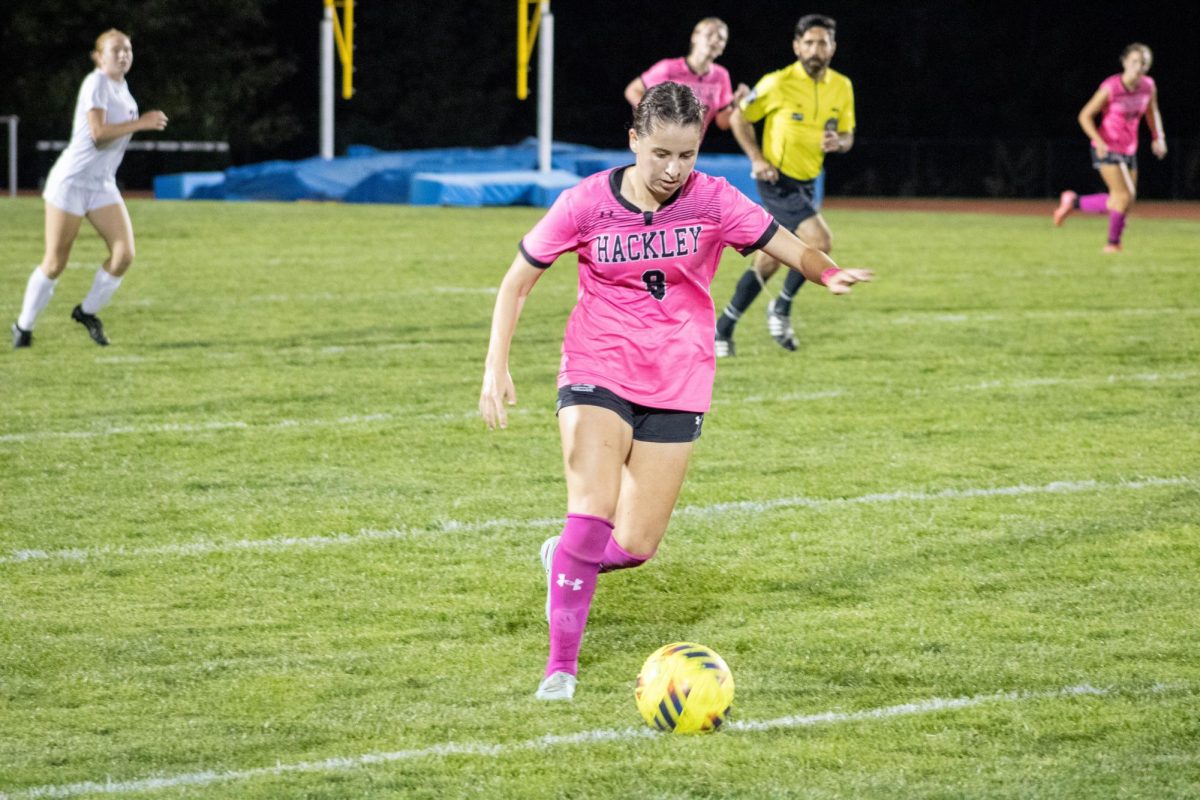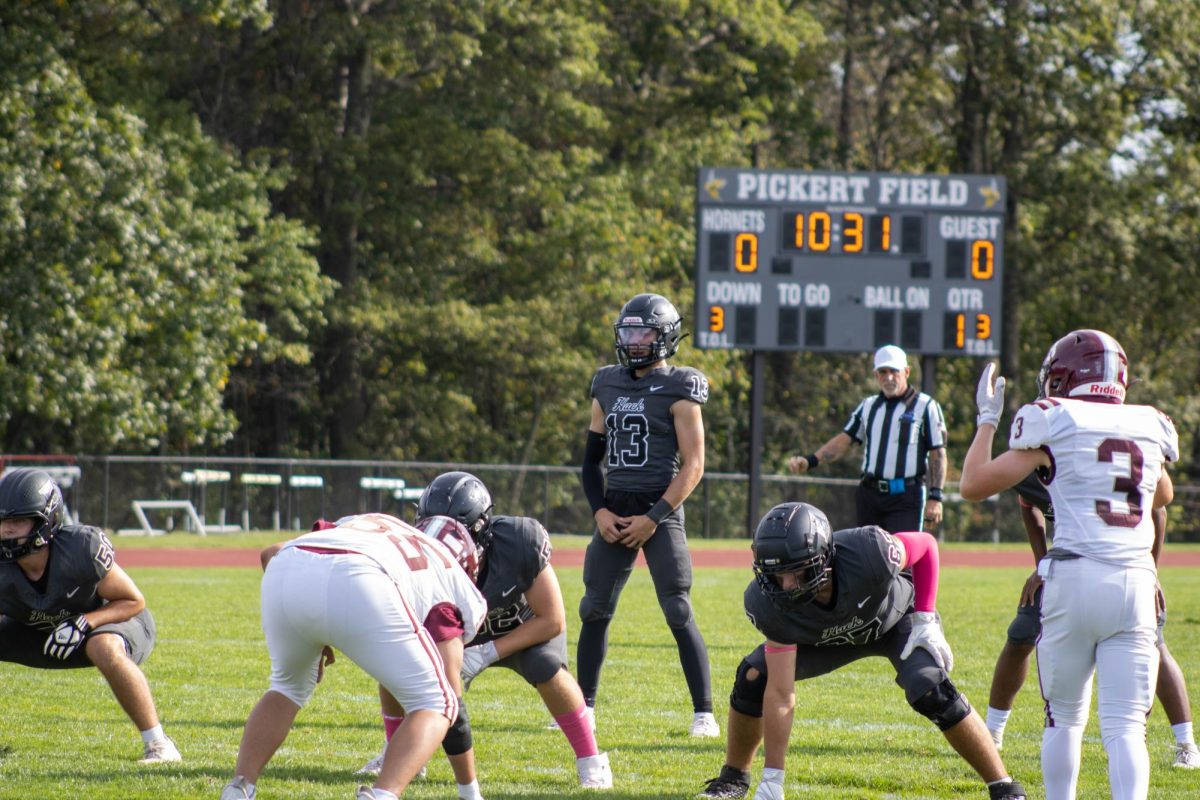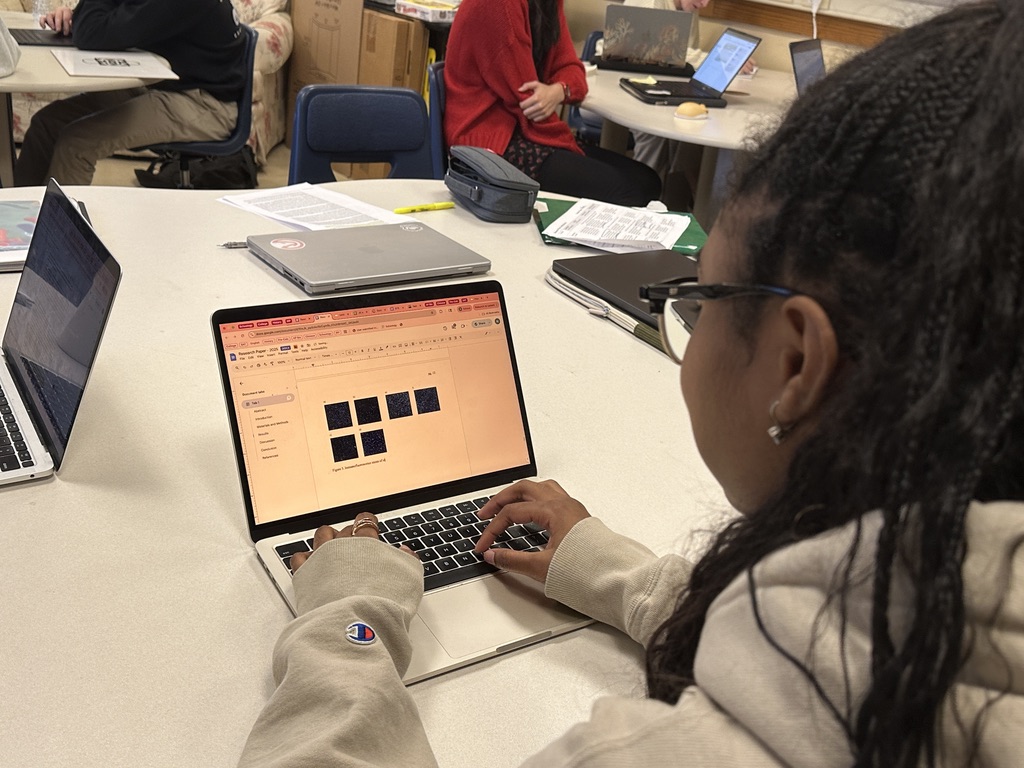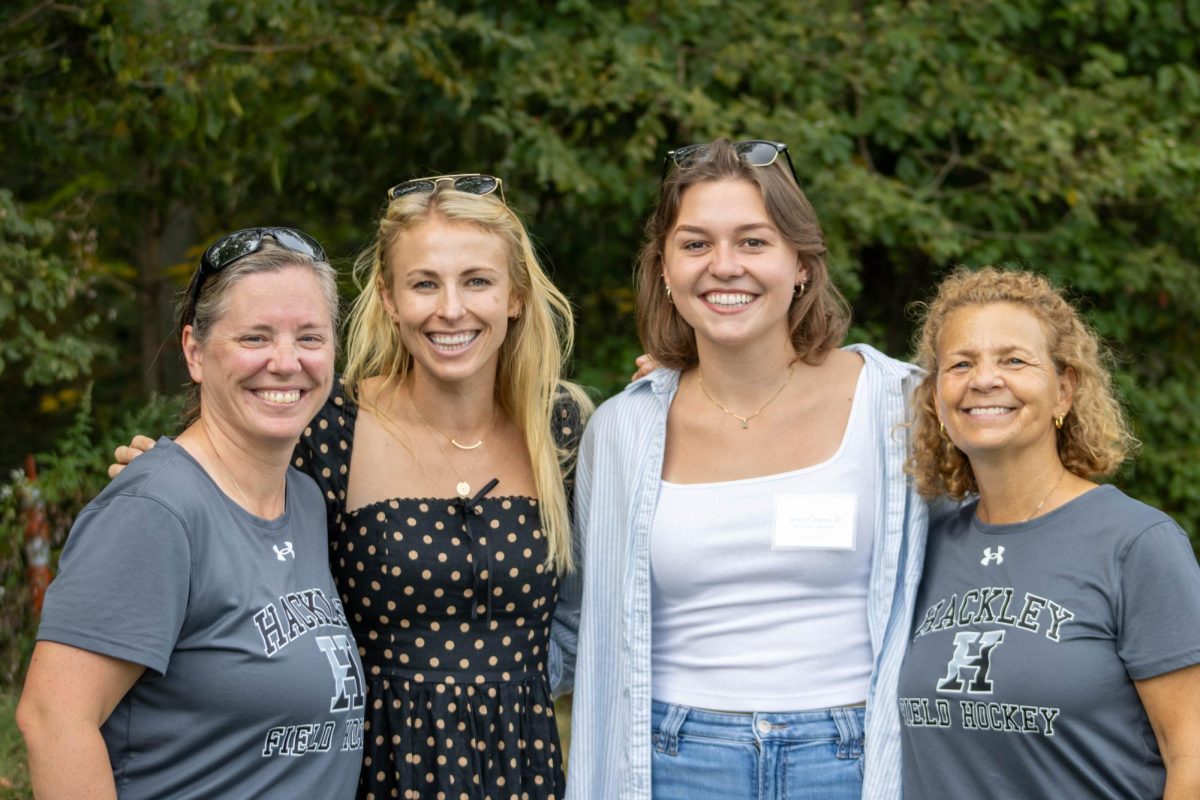Hackley has a strong program geared towards science research, ranging from students examining Alzheimer’s Disease to trying to uncover a potential treatment for lymphoma to tracking disparities in the accuracy rates of natural language processing in machine learning. This program is known as Hackley’s Independent Research Science Program and many students participate in it throughout their sophomore, junior, and senior years. This year The Dial interviewed senior Eliza Podvalny, junior Vivek Malik, and sophomore Elan Suttiratana about their work for IRP.
Eliza Podvalny’s research centers around Alzheimer’s Disease – which impacts over seven million people but has no effective treatment. The progression of the disease begins years before clinical onset where people may not feel signs or symptoms. This makes it critical to identify the biomarkers, which are helpful for diagnosing the disease as early as the asymptomatic stages. However, when the disease has fully manifested for someone, treatments can slow its overall course but will not stop neurodegeneration. Given that the pathology of the disease is complex, it is necessary for further research to understand the important mechanisms underlying the disease and the stages at which they occur.
Eliza’s research attempts to improve our understanding of this complex pathology.
“My research looks into various novel biomarkers and pathologies in Alzheimer’s Disease that are mutual with another disease known as CADASIL, a cardiovascular disease, she said, “I then conducted a comparison study of the two diseases for the potential discovery and development of more effective treatments for Alzheimer’s Disease.”
Eliza’s interest in Alzheimer’s Disease has not been something new. I’ve always been fascinated with memory because our experiences are essentially like the building blocks of our identity. So what happens when we “lose” or can’t remember our memories? Can we regain them? she said.
These are some of the important questions Eliza is fascinated with and her motivation for her research is the prospect of bringing hope to people who are in danger of losing their memories after becoming afflicted with dementia. As mentioned, more than seven million people in the United States live with Alzheimer’s Disease and despite the persistent effort to find a target treatment, no effective treatment has been established.
“I want to help change that. For a treatment to be successful, a researcher must first understand the origins and the pathology of the disease. This is why part of my project is learning more about the formation and development of Alzheimer’s Disease on a more molecular level,” Eliza said.
Eliza traces her passion for science to starting at a young age. “I’ve always wondered and asked countless questions about how and why things work, often torturing my parents when I was younger about things like why the sky is blue,” she said, “As I got older, my questions became more complicated, and I, nor my parents, could find the answers.”
She then decided to explore these mysteries herself and she loves that science gives people the freedom to learn more about a topic of their choice along with building curiosity around the new findings the research can lead to. Not only does Eliza want to contribute to this research, but she also wants to make a difference in people’s lives by finding answers to these questions.
Her internships over the summer have allowed her to further her research. In the summer of 2022, Eliza was accepted into a research program known as Secondary Student Training Program (or SSTP) at the University of Iowa. She was able to work there for six weeks alongside a mentor studying how the brain categorizes the different information it receives. She researched the storage of nouns and verbs for potential treatments for people with Aphasia, a language disorder.
“It was one of the best experiences of my life,” she said, “I was able to do meaningful research every day from 9 am to 4 pm and created such strong relationships with the other students that were a part of the program. There was almost no other place where I found people so similar to myself, yet so diverse and different.”
She loved being able to work with her mentor on research but also be surrounded by other mentors and students with their own set of research interests and backgrounds and as a result made her experience far more memorable.
This past summer, Eliza worked at Mount Sinai in New York City with the Elahi lab. She worked there for eight weeks from 9 am-5 pm and was able to learn more about the pathology of Alzheimer’s Disease as well as understand what life entails for a researcher on a day-to-day basis. She was even able to shadow neurologists and participated in a mock neuropsychological test which further cemented her interest in becoming a neurologist in the future.
In terms of Eliza’s relationship with her mentor, she still keeps in touch with her mentor during the school year and meets with her once a week to discuss the progress of the paper she is crafting.
Eliza is set on becoming a doctor but knew at a young age that she wanted her profession to center around helping others. Two summers ago she had the opportunity to shadow a clinician-researcher who was also studying Alzheimer’s Disease and she was able to better understand the interactive nature of researchers and patient-doctor relationships. She was fascinated to learn about the different sides of being a clinician-researcher, in terms of the research and doctor aspects, and this further motivated her to explore what a career might involve.
“I want to work at the intersection of science research, which has the power to explain certain mysteries, and clinical medicine, which has the ability to translate scientific discoveries to a deliverable form that can directly help the patients in need,” she said, “The idea of being a part of a profession focused on helping others regardless of circumstance, and dedicated to facilitating people leading healthier and happier lives clicked with me and continues to drive my passion for neuroscience.”
Junior Vivek Malik is also working on an important medical issue. His research focuses on investigating a potential novel treatment for a type of blood cancer known as lymphoma. He elaborated on previous knowledge about lymphoma sharing that it is the result of harmful genetic mutations that occur when immune cells divide. However, the specific origins of lymphoma are unknown and it is one of the hardest cancers to treat, making the survival rates quite slim. Within the past few years, a new method of treating cancers has been developed and shows great promise called “antibody drug-conjugates”. It allows for the killing of cells that express a specific target.
Vivek elaborates that “my research is focused on finding out whether we can use this ‘antibody drug-conjugate’ therapy to effectively treat lymphoma. The answer, as it turns out, is yes and my research shows that it could be quite effective”.
Vivek began this research because of his deep fascination with the immune system.
“It’s just so mind-boggling that we have a massive military-like defense system inside our body,” he said, “Each of our billions of immune cells performs different tactical functions that ultimately ensure our daily survival. How immune cells behave in response to cancer is what really intrigued me, because cancer makes our immune cells behave in bizarre and unpredictable ways.”
He then went on to share that he became interested in lymphomas because the immune cells themselves are the cancer. What keeps drawing him back to his research is that there is still so much that is unknown but with the current technology so much can be known.
One might assume Vivek has always been passionate about science, but it’s actually something that flowered in high school.
“I don’t know that I’ve always had a passion for science specifically, but I’ve always had a passion to create and communicate and science is the perfect intersection of these two ideas,” he said. He finds it so appealing because it is a never-ending cycle of problem-solving and analytical thinking that at the end of the day can benefit others.
Prior to IRP, Vivek was working on a computational biology project that involved understanding the long-term effects of COVID-19 infection and how it could lead to more serious conditions in patients.
As part of taking IRP, students have to complete research over the summer. For most students and as is the case for Vivek, he spent about 40 hours per week for anywhere between six to ten weeks for his internship. Vivek worked in a physical “wet lab” which he described as, “in its most basic form, the research process goes something like reading previous literature surrounding a topic, formulating a research question, experimental design, carrying out the experiment, generation of raw data, and finally data analysis or visualization.”
He worked this past summer at Regeneron – a biotech/pharma company located only a few miles away from Hackley. Regeneron has a program where they select high school students from across the country but mainly in the tri-state area to complete science research mentored by a Regeneron scientist.
After his work this summer Vivek tries to talk to his mentor around once a month to keep him updated on his work especially given that he is returning to Regeneron this upcoming summer.
In terms of the overall layout of the class structure, Vivek adds that it tends to depend on the grade level. “In tenth grade, students primarily spend class time reading research articles about topics they are interested in, learning to effectively present science, and reaching out to potential mentors to find research opportunities for the summer,” Vivek said.
For juniors and seniors, they have the option to submit their work to science competitions. “So for me, the majority of class time is spent writing my research paper and designing a poster,” he said. When walking through the junior hallway, these posters can certainly be spotted hanging on the walls. They also complete occasional assignments not related to specific research projects aimed at honing presentation and scientific writing skills.
When asked about why he loves his research he said, “ Getting results. More often than not, experiments yield null or inconclusive results. And as much as it hurts to spend hours designing and carrying out an experiment, only to see it fail, it’s part of the process.” Additionally, it’s even more exciting to him when the results confirm the hypothesis or shed light on new ideas.
“It is really satisfying to visualize raw data and see clearly significant results because it means you figured out something new that ever so slightly advances scientific knowledge,” Vivek said.
Sophomore Elan Suttiratana is working with a mentor focusing his research on studying disparities in the accuracy rates of natural language processing in machine learning, specifically between different types of language and script. He then examines how these disparities affect Brahmic/Indic scripts.
When asked about his passion for science, Elan replied, “I’ve always been interested in science, but I never took significant action on my interest until joining IRP this year. I’ve always been somewhat naturally talented at math and science, so at an early age my success drove me to learn more about fields of science that interested me. These fields, like physics and computer engineering, helped develop a genuine passion for learning and science as a whole.”
Before diving into IRP for the first time this year, he had not completed any research prior to IRP. However, he had looked into applying to external programs before entering high school but ended up not completing science research.
In terms of the layout of a typical IRP class, Elan said that there is usually a group activity they complete – whether that be a Kahoot, survey, TED Talk, or more. Individually he either completes any assigned work or assignments about his internship.

